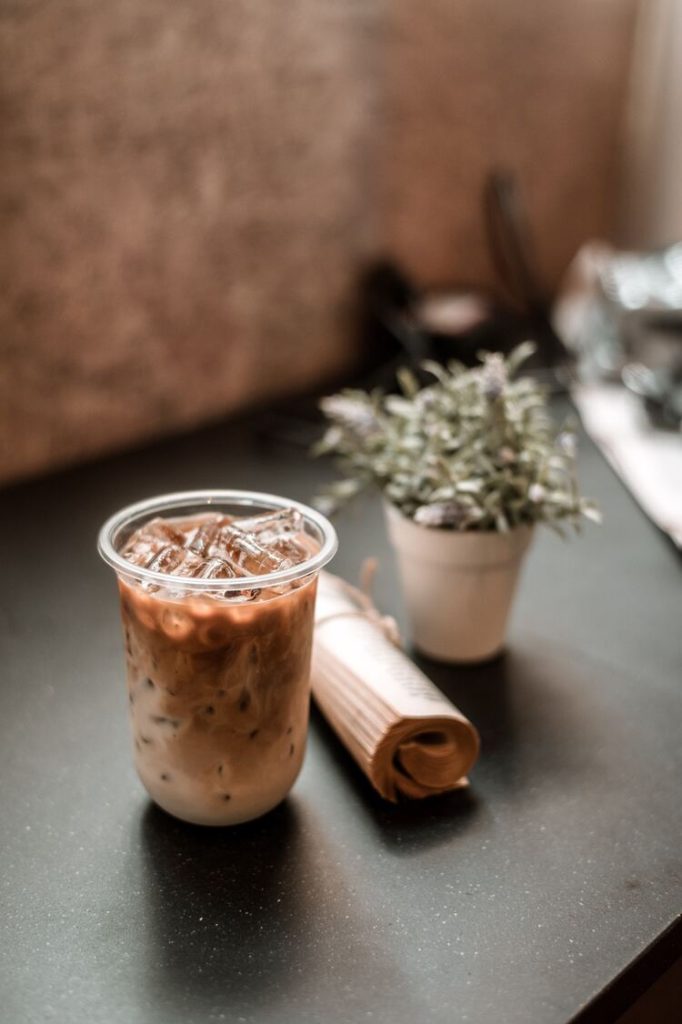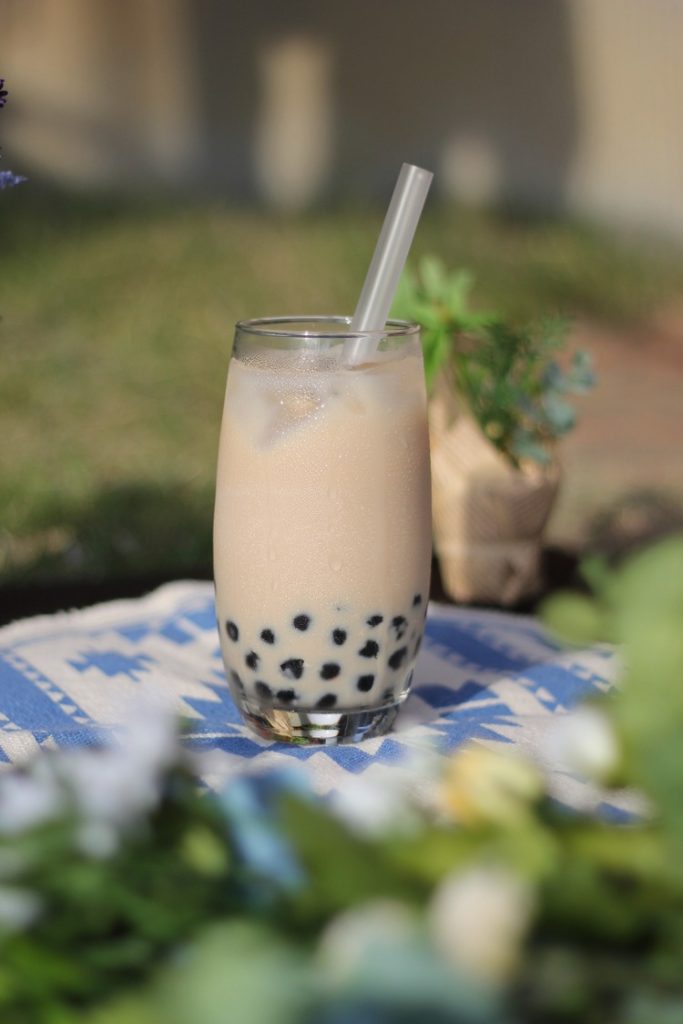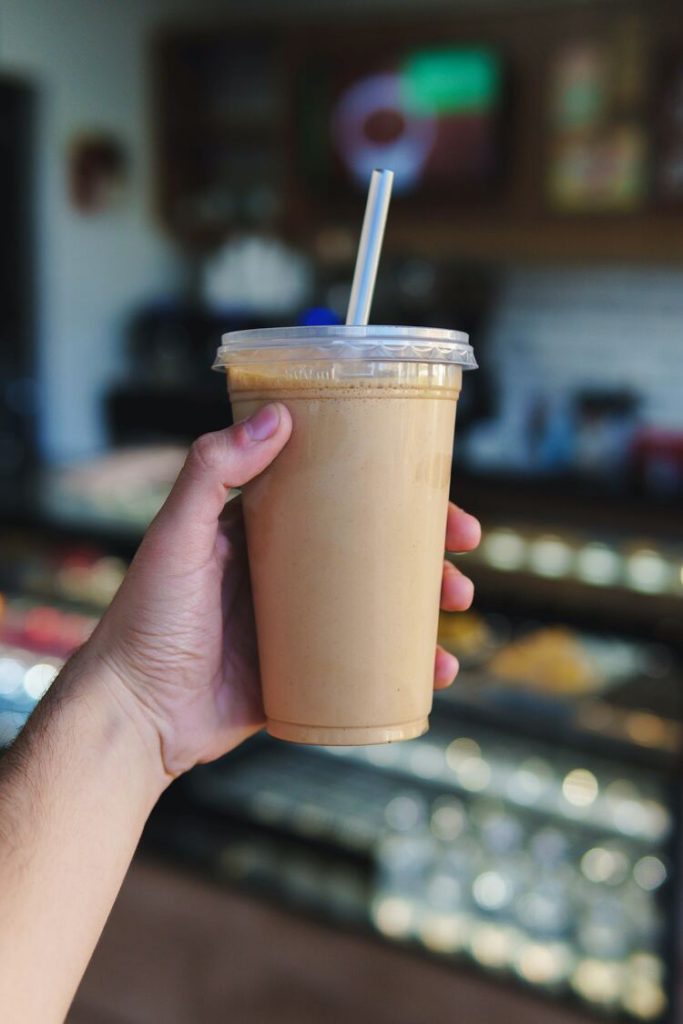What does milk tea taste like? Milk tea is a popular drink that originated in Taiwan and has since spread to other parts of the world. It combines tea, milk, and sweeteners, which can be adjusted to suit taste preferences. The tea used in milk tea can vary, but black tea or green tea are the most common choices.
When you sip milk tea, you’ll notice its creamy texture and a sweet, slightly floral taste. The milk adds a richness to the tea that balances out the bitterness of the tea leaves. The sweetness can come from various sources, such as sugar, honey, or condensed milk. Some variations of milk tea also include toppings like tapioca pearls or jelly, which add a chewy texture to the drink.
Keep reading to learn more about this delicious and refreshing drink that is perfect for any time of day.
Please note: This article contains affiliate links, meaning I may earn a commission if you make a purchase by clicking a link. Of course, this comes at no extra cost to you and helps me keep offering readers solid information.

What is Milk Tea?
You might have heard of milk tea if you’re into tea (and even if you are not). This popular beverage combines tea and milk, and it’s enjoyed by people worldwide.
Milk tea is a versatile drink that can be enjoyed hot or cold, and it’s often mixed with other ingredients like boba, fruit, or syrups.
And, since you can add boba or tapioca pearls to milk tea, some people call it boba tea or bubble tea. There are subtle differences between the terms, but since boba is the most popular topping for milk tea, a lot of people use the terms interchangeably.
Types of Tea Used in Milk Tea
Milk tea can be made with various tea types, each with its unique flavor. Here are some of the most popular types of tea used:
- Black tea: This is the most common type of tea used in milk tea. It has a robust and bold flavor that pairs well with milk and sugar.
- Green tea: This tea has a lighter flavor than black tea and is often used in cold milk tea drinks.
- Oolong tea: This tea has a unique taste between black and green tea. It’s a popular choice for hot milk tea drinks.
- Herbal tea: This type of tea is caffeine-free and comes in various flavors. It is an excellent option for those who enjoy caffeine-free beverages.
Toppings
You can add variety to your milk tea with a selection of toppings.
- Boba: This is probably the most popular milk tea topping. Boba, bubbles, or tapioca pearls are made from tapioca starch. These are popular for their chewy texture and slightly sweet taste.
- Fruit jelly: Various fruit jelly flavors, such as mango or lychee, can add a refreshing twist to your milk tea.
- Grass jelly: Cut into small cubes, grass jelly brings a subtle herbal flavor and an enjoyable texture to your beverage.
- Pudding: A touch of silky pudding offers a smooth, creamy addition to your tea.
Milk Tea Variations
Milk tea is a versatile drink that can be customized to suit your taste preferences. Here are some of the most popular variations:
- Classic Milk Tea (Hong Kong-style): This version typically consists of strong black tea, condensed milk, and evaporated milk.
- Bubble Tea (Boba Tea): Bubble tea is a Taiwanese invention that combines black or green tea with milk (or fruit flavors) and chewy tapioca pearls.
- Thai Iced Tea: Thai iced tea is made from strongly brewed Ceylon tea mixed with sweetened condensed milk or coconut milk.
- Honey Milk Tea: This variation includes black or green tea, milk, and honey for natural sweetness.
Keep in mind there is a vast array of milk tea variations. We have kept things short here but you can explore more by checking our Most Popular Boba Tea Flavors article.
Milk tea can be enjoyed in many different ways. Whether you prefer hot or cold, sweet or savory, there’s a milk tea variation out there for you to try or prepare.

What Does Milk Tea Taste Like?
The flavor of milk tea can vary depending on the type of tea used, the amount of milk and sugar added, and any additional flavorings.
In general, milk tea has a rich, creamy texture and a sweet, slightly astringent taste. The tea flavor can range from bold and robust to light and floral, depending on the type of tea used.
Depending on the variations, you can expect to find caramel, vanilla, cardamom, cinnamon, and clove flavors in your tea. Herbal, floral, nutty, and smoky flavors can be introduced as well.
Factors That Affect the Taste
Several factors can affect the taste of milk tea, including the type of tea used, the quality of the milk, and the amount of sugar added. The following table summarizes some of the key factors that can influence the taste:
- Tea: The type of tea used can affect the flavor of milk tea. Black tea is commonly used, but other types like green and oolong tea, can also be used.
- Milk: The milk quality can affect the creaminess and richness of the milk tea. Some people prefer to use dairy substitutes like soy milk or coconut milk.
- Sugar: The amount of sugar added can affect the sweetness of the milk tea. Some people prefer natural sweeteners like honey or sugar syrup instead of refined sugar.
- Flavorings: Additional flavorings like spices, condensed milk, caramel, or chocolate can be added to create a unique taste profile.
- Toppings: As mentioned, boba is milk tea’s most popular topping. These may not have a significant influence on the drink’s flavor profile unless they are mixed with brown sugar (they tend to be flavored this way). Other toppings will add a range of flavors to your drink.

How to Make Milk Tea
Preparing milk tea at home is easier than you think. Just follow the recipe provided below.
Ingredients for Milk Tea
You will need the following ingredients:
- 1 tablespoon black tea leaves of your choice (or one tea bag per 8 ounces of water)
- 1 1/2 cups water
- 1/2 cup milk (whole milk, almond milk, or any preferred milk substitute)
- 1 tablespoon sugar or preferred sweetener (optional)
- 1/2 cup cooked tapioca pearls (optional, cook per package instructions)
Steps to Make Milk Tea
- Boil water and let it cool for about 1 minute (water temperature should be around 190-200°F, or 90-95°C).
- Steep your tea in the hot water for 3-5 minutes, depending on how strong you want the tea.
- Once the tea has finished steeping, remove the tea leaves with a strainer.
- Let the tea cool down to room temperature.
- Combine the cooled tea, milk, and sugar or sweetener in a shaker or blender. The milk-to-tea ratio can vary depending on your preference, but a 1:1 ratio is an excellent place to start. Shake or blend until well combined.
- Fill a tall glass with ice cubes and pour the tea mixture over the ice.
- If desired, add the cooked tapioca pearls to the glass, using a spoon to mix them into the tea.
- Finally, taste your milk tea and adjust the sweetness and milk ratio as desired. Enjoy!
Making milk tea at home is easy and customizable to your taste preferences. We have written extensively about different milk tea flavors (can you tell we love this stuff?). Feel free to browse through our catalog to get inspired.
What Does Thai Milk Tea Taste Like?
What Does Taro Milk Tea Taste Like?
What Does Tiger Milk Tea Taste Like?
Everything About Tiger Milk Tea
What Does Jasmine Milk Tea Taste Like?
What Does Lavender Milk Tea Taste Like?
What Does Rose Milk Tea Taste Like?
What Does Honeydew Milk Tea Like?

Potential Health Benefits of Milk Tea
Here are a few potential health benefits of milk tea:
- Antioxidant Properties: Tea, whether black, green, or oolong, contains antioxidants called polyphenols. These compounds may help combat oxidative stress and reduce the risk of chronic diseases.
- Heart Health: Some studies suggest that tea consumption, mainly green tea, may be associated with a reduced risk of heart disease. Tea polyphenols can help lower blood pressure and improve cholesterol levels.
- Weight Management: Unsweetened milk tea, especially when prepared with low-fat or skim milk, can be a lower-calorie alternative to sugary beverages like soda. It may help with weight management when consumed as a balanced diet.
- Bone Health: Milk tea made with dairy milk is a calcium and vitamin D source, essential for maintaining strong bones and teeth.
- Energy Boost: The caffeine content in tea can provide a gentle energy boost without the extreme highs and crashes associated with coffee or sugary energy drinks.
- Mood Enhancement: Tea contains the amino acid L-theanine, which may promote relaxation and reduce stress and anxiety when consumed in moderate amounts.
- Skin Health: The antioxidants in tea may contribute to healthier skin by protecting it from damage caused by UV rays and promoting collagen production.
- Hydration: Tea is primarily water, so milk tea can contribute to your daily fluid intake, helping to keep you hydrated.
It’s important to consume milk tea in moderation and be mindful of the ingredients used. Some potential downsides to consider include:
- Sugar Content: Many commercially available milk teas can be high in sugar, negating some health benefits. Opt for unsweetened or lightly sweetened versions if possible.
- Calories: Milk tea made with whole milk can be calorie-dense, so consider using lower-fat milk options if you’re watching your calorie intake.
- Caffeine Sensitivity: Some individuals may be sensitive to caffeine and should limit their consumption, especially if they experience adverse effects like anxiety or sleep disturbances.
- Allergies or Lactose Intolerance: If you have allergies or lactose intolerance, be cautious when consuming milk tea made with dairy milk. Consider alternative milk options like almond, soy, or lactose-free milk.
As with any food or beverage, moderation is key.
Buying Recommendations
In an effort to encourage you to prepare milk tea at home, here are our top recommendations (it may cost you $1.5 – $3 to prepare it at home versus $5 – $8 in a store).
Organic Positively Tea Company, Assam TGFOP Black Tea

Tea India CTC Assam Loose Leaf Black Tea


Find below some recommendations concerning toppings for your milk tea.


Buy on Amazon now (these are a quick cook option; they are already flavored/sweetened)


I hope you have enjoyed the article. We are big fans of milk tea and love sharing tidbits about it!
To you, what does milk tea taste like?